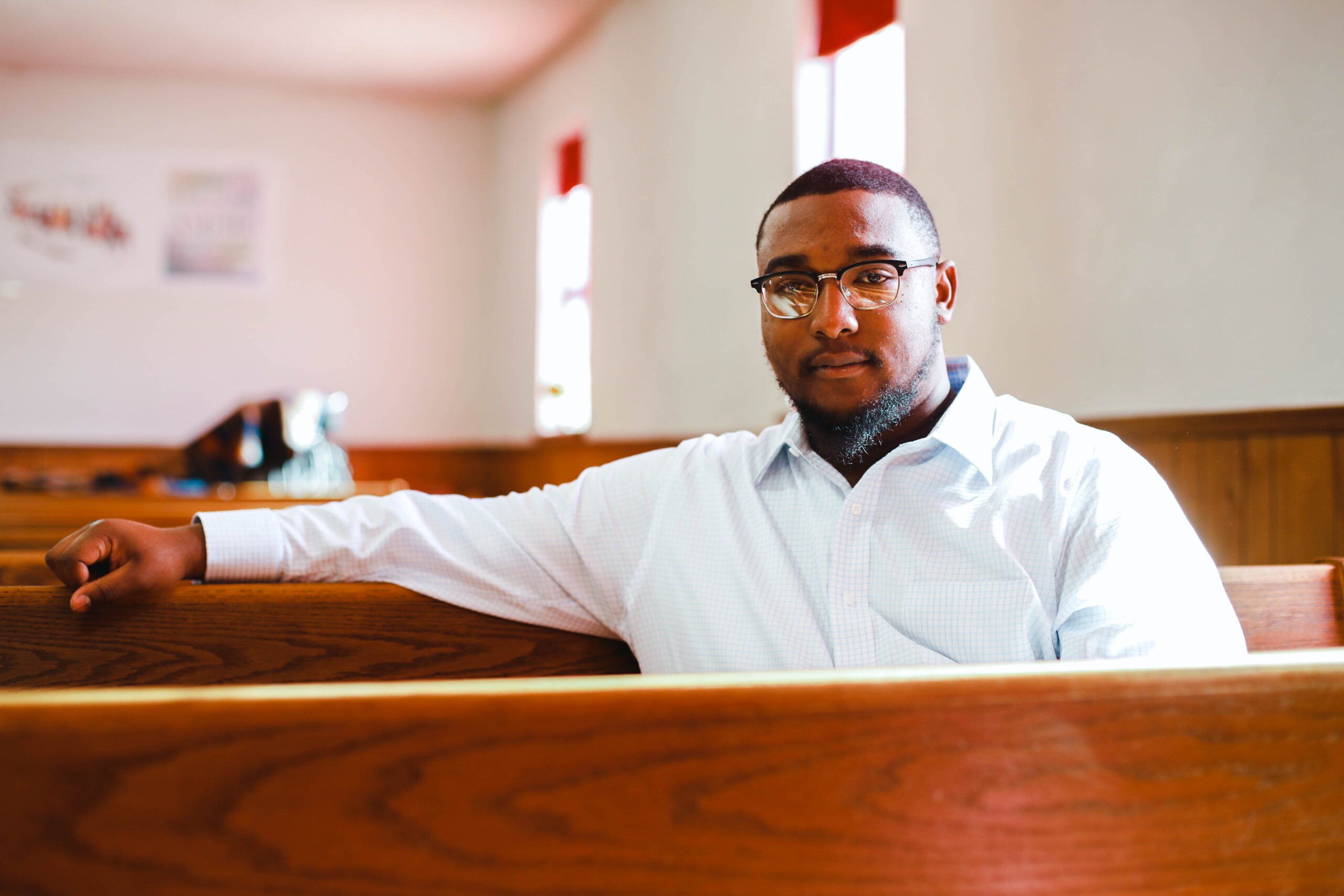We visited the Ohio Organizing Collaborative, the Ohio federation of Faith in Action. Their goal is to build transformative relational power with everyday Ohioans for statewide social, racial, and economic justice. One way they do this is with The Amos Project, a network of congregations, clergy and people of faith organizing with the most vulnerable in our communities for racial and economic justice in the state of Ohio. We talked to Pastor Stanley who has joined the Amos Project.
Tell us about your story. How did you get into ministry and what has that journey looked like for you?
I came to accept my call to the ministry at a very early age. I was born and raised in the Baptist Church in Columbus and I was always taught, you know, that God speaks to you the way that you listen and I had been wrestling some time with what it was that God was calling me to do. One Sunday I heard his voice clearly telling me that He wanted me to preach and proclaim His gospel. From that point on I have attempted to do my best to fulfill the call that’s been in my life. From that point in life I went on and started getting serious about Ministry underneath my current pastor, Reverend Derrick Holmes. He sent us through training and all that good stuff and helped take my call and help craft and develop it into what it is today.

I hear you’re also the youngest pastor in Ohio…
I think I’m the youngest at the age of 26. The youngest pastor I know of the Baptist tradition in the state.
How do you connect faith and justice?
I don’t think you can separate faith from justice. I think it goes hand-in-hand. I think there’s numeral examples in scripture about how our faith intersects and combines with justice. I believe that we serve Jesus of justice. There are numerous occasions where Jesus displays justice, and more so, restorative justice. Even when you think about the woman at the well, or just all the different moments where Jesus is presented with something and pushes against what might be the custom of the culture at the time. That way He can provide justice and restore whoever it was that was separated or ostracized or was cast out. And I don’t believe that you can separate justice from our salvation or justice from the Christ that we serve. So I think that you can’t have one or the other. I think Jesus was a Jesus of Justice and because of that, I choose to allow it to inform who I am as a preacher, who I am as a person, as an individual, my ideology is just one of justice I don’t think you can have effective ministry in the eyes of Christ and it not be about social justice, civil justice. To have it not be about the marginalized, those who are ostracized, and discriminated against. I think that that’s where ministry should start because that’s where Jesus’ ministry started.
What does that look like for your congregation?
We have the Blessed privilege of being located literally in what I would call mission territory. We’re in the middle of Windsor Terrace right in South Linden. We’re blessed to have two locations, including one up in North Linden across from New Salem Baptist. We deal with in our community a lot of the marginalized, those that are casted out, and things of that nature. So our ministry has a specific focus on how can we serve our community. If your church is what it is but means nothing to the community I think we have it wrong. When the teachers went on strike a little while ago that was right here in our community. And rather than pick sides, which a lot of folk were doing. At that moment we wanted to make sure students were getting supportive but we also wanted to make sure that we were able to support our teachers as well. So what does it look like to open up the church so they can come and use the restroom while they’re fighting for what’s fair. So they don’t have to worry about a place to park with their car getting towed, a place to use the bathroom, a place where they can come and get something to eat if they get time to sit down. How can we serve our community and really meet the needs of the people? I say all the time that help isn’t help if it doesn’t help and we want to make sure that we’re a Ministry that’s meeting the needs of our community and providing the help that they actually need.
How do you connect voting to the connection between faith and justice?
Voting controls, or allows, our voice to be heard. I think that sometimes we forget that our elected officials work for us and if they’re not working for us, then it’s time to get someone who will work for us. We do that and can express that, of course, through demonstration, though protest. But I believe that voting plays a critical role in that which is why I am very pleased with the work of the Amos Project and the blessing you’ve all been to our ministry. Helping us around the voting initiatives and getting people registered to vote in our congregations and really pushing the importance of voting. Because if it’s not working for us then it’s time to make a change and that’s the way that we can directly have immediate change what it is that we’re seeking.
You’ve mentioned the Amos project, can you speak a little more about that and why you’ve chosen to partner with the Ohio Organizing Collaborative?
Inside the church we’ve gotten the narrative that we believe that the pastor needs to know how to do everything. And the reality is I’m not an expert in every field in every arena. God has called me to preach the gospel, I’ve been blessed to have some administrative skills, musical skills, leadership skills. But I believe that we get on these small Islands thinking that we have to be the expert in everything. But when we have an organization that aligns on some of the things that we align on with our spiritual and core values, and they have a mind and heart for justice, a mind and heart for social justice, civil justice, the voting rights initiative, and they have something in place, I think it behooves ministries to take advantage of what the Amos Project already has up and running. How we can take that and incorporate that into our local churches instead of starting on ground zero and then trying to do things individually. I believe that there’s power number and joining with the Amos project that already has boots on the ground and already has some traction, being able to assist in that way, and add some more boots on the ground with them. But also learn from you all and see what that can look like in our context, in Windsor Terrace, is just a wealth of knowledge and a blessing.
What would say to someone who is discouraged and doesn’t want to vote?
We cannot complain about what it is that we see if we’re not willing to get out there and do our part. If you get out there and do your part, you register to vote and you show up to the polls to cast your vote then we have something to kind of talk about and complain about. But if we never have any skin of a game, things won’t change. Like I said, I believe that there’s power in numbers and the polls show that in the past several elections the polls show that when a certain group or mindset of folks show up and then win there’s a certain group that doesn’t show up. Results show what happens when a group of people show up in good numbers. And I would just encourage them not to get discouraged by what you see. That we actually do have the power. There is strength in numbers and keep voting until something changes. Doing nothing sitting idle changes nothing but we have to do something until something changes.
